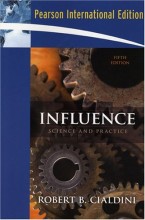Summary: Neuropsychological Assessment
- This + 400k other summaries
- A unique study and practice tool
- Never study anything twice again
- Get the grades you hope for
- 100% sure, 100% understanding
Read the summary and the most important questions on Neuropsychological Assessment
-
College 01
This is a preview. There are 8 more flashcards available for chapter 04/02/2019
Show more cards here -
What are the basic skills that are important for neuropsychological assessments?
- Determine for which disorders the neuropsychological tests that were introduced can be used
- interpret the results of a neuropsychological assessment
- Use the neuropsychological tests that were introduced in differential diagnostics.
- Integrate and interpret the results of multiple neuropsychological tests.
- Critically judge the use of tests with regard to the manual, tests instructor, behaviour of the patient.
-
What is the order and purpose of a neuropsychological assessment?
- diagnosis
- patient care and planning
- treatment, planning, and remediation
- treatment evaluation
- Research
- forensic neuropsychology
-
Patient care and planning purpose?
- Identifying cognitive strengths and weaknesses.
- Identifying behavioural alterations.
- Identifying personality characteristics
-
Treatment planning and remediation purpose?
- What is the most appropriate cognitive rehabilitation treatment?
-
Treatment evaluation purpose?
- Did the treatment have an effect? [was it not caused by something else like time?]
-
Forensic neuropsychology purpose?
- Is used for claims of injury and loss of function
- In criminal cases
- Is there reason to suspect brain dysfunction that contributes to misbehaviour?
- Is the defendant's mental capacity sufficient to stand trial?
-
What is the diagnostic cycle?
- The diagnostic process
- Referral question
- Medical history.
- (Hetero)anamnesis
- Neuropsychological tests.
- Write report.
[always create new hypothesis during the diagnostic cycle based on new knowledge and literature. It is important to be open for different explanations of behaviour] -
What is evidence based medicine?
Evidence based medicine (EBM) is based on:- Clinical judgement
- Relevant scientific evidence
- Patients values and preferences
-
What are interpretation errors?
- The tendency to rely strongly on some results and to disregard others
- Disregarding base rate of disorders
- neurologist specialized in alzheimer wil give the alzheimer diagnosis more easily - confirmation bias
- Looking for results that support the hypotheses - Thinking that subjective complaints are objective disorders.
-
What are the two classical approaches to neuropsychological assessments?
- Psychometric approach
- Based on the Reitan-Halstead testbattery - Behavioural neurological approach
- Based on Luria
- Psychometric approach
- Higher grades + faster learning
- Never study anything twice
- 100% sure, 100% understanding































